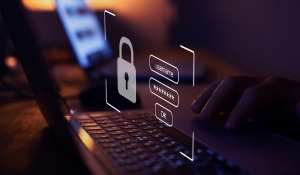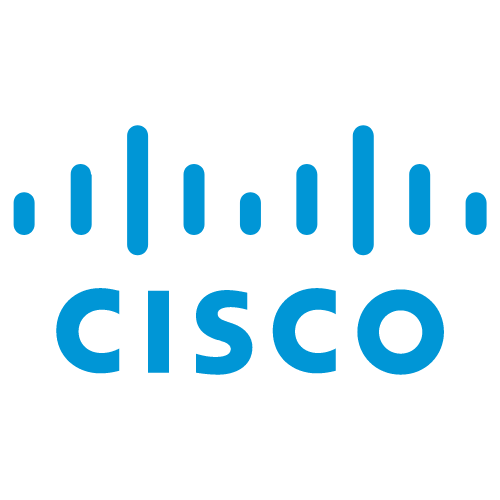Orixcom Managed Cybersecurity Solutions
- Home
- Managed Solutions
- Cybersecurity
Cybersecurity Solutions
Stay ahead of evolving threats with Orixcom's proactive cybersecurity services, customised to address the unique challenges faced by businesses in the UAE and worldwide. As a trusted Cisco Managed Security Services partner, our comprehensive approach integrates advanced network and cloud security measures, delivering robust defence against modern cyberattacks.
Find the right cybersecurity solution for your business today!
Why Choose Orixcom as a Cybersecurity Partner?
Fully Managed Solutions
Financial Flexibility
Rapid Deployment & Scalability
24x7x365 Monitoring & Support
Seamless Policy Configuration
Comprehensive Reporting & Analytics
Customer Success Stories
Increased Cybersecurity Protection for Remote Workers at Chedi Muscat

Cisco Secure Email reduces email phishing by 99% for Bedashing Beauty

Orixcom Managed Cisco Secure Email keeps NationLabs' Email Secured
Empower your cybersecurity strategy with Orixcom today.
Featured Resources
Explore our curated selection of essential cybersecurity resources at Orixcom.

Unlocking the Power of Cisco Umbrella: Features and Pricing Demystified
Deciphering Cisco Duo Pricing: A Comprehensive Guide

Cisco Secure Email Pricing: Unveiling Features, Packages and Cost Factors

Top 30+ Cybersecurity Tips for Employees: Tailored for Office and Remote Settings
Become an Orixcom Cybersecurity Partner today!
Secure your digital landscape with Orixcom's advanced cybersecurity services, available in Dubai and globally. Our Managed Solutions optimise network and cloud security, fortify infrastructure, and streamline connectivity, empowering you to thrive in the digital realm.
Talk to an expertExplore Orixcom's Connectivity & Colocation Solutions
Orixcom offers vital digital transformation services, including connectivity and colocation, to boost your business's agility, performance, and scalability, beyond robust cybersecurity.
FAQs
A cybersecurity solution encompasses a range of tools, practices, and technologies designed to protect systems, networks, and data from digital threats such as cyberattacks, malware, and unauthorised access.
-
Strong Password Policies: Implementing strong password policies involves requiring users to create passwords that are complex, long, and unique. These passwords are harder for attackers to guess or crack using automated tools. Policies may include requirements such as minimum length, the inclusion of special characters, and regular password changes.
-
Regular Software Updates: Regularly updating software is crucial for cybersecurity as updates often include patches for known vulnerabilities. Cybercriminals frequently exploit outdated software to gain unauthorised access to systems or spread malware. By staying current with updates, organisations can significantly reduce the risk of successful cyberattacks.
-
Multi-Factor Authentication (MFA): MFA adds an extra layer of security beyond just a username and password. It typically requires users to provide two or more forms of identification to verify their identity, such as a password combined with a code sent to a mobile device or generated by an authentication app. This significantly enhances security by making it much harder for unauthorised users to gain access to accounts.
-
Employee Training and Awareness: Employees are often the weakest link in cybersecurity, as many cyberattacks exploit human error or manipulation (e.g., phishing). Providing regular cybersecurity training and raising awareness among employees about common threats, best practices, and how to recognise and report suspicious activity is essential for strengthening an organisation's security posture.
-
Robust Data Encryption: Data encryption involves encoding data so that only authorised users with the decryption key can access it. This is particularly important for sensitive information such as customer data, financial records, and intellectual property. Even if attackers manage to access encrypted data, they cannot read or use it without the decryption key, providing an additional layer of protection against unauthorised access or data breaches.
-
Assess your security needs: Take stock of your organisation's assets, including data, systems, and networks. Identify potential threats and vulnerabilities by conducting a comprehensive risk assessment. Understand the specific security requirements of your industry, compliance standards, and any regulatory obligations you must meet.
-
Research available solutions: Explore a range of security solutions, including antivirus software, firewalls, intrusion detection systems, encryption tools, and more. Consider factors such as features, performance, scalability, ease of use, and cost. Look for solutions that offer comprehensive coverage across multiple attack vectors, ensuring robust protection against various cyber threats.
-
Prioritise proactive defence: In today's rapidly evolving threat landscape, reactive security measures are no longer sufficient. Choose security solutions that employ proactive defence mechanisms, such as real-time threat detection, behaviour analytics, and automated response capabilities. Look for features like threat intelligence integration, sandboxing, and machine learning algorithms that can anticipate and mitigate emerging threats before they cause harm.
-
Consider provider reputation: Selecting a reputable security provider is crucial for ensuring the effectiveness and reliability of your security solution. Research providers thoroughly, considering factors such as industry experience, customer reviews, certifications, and awards. Look for providers with a proven track record of delivering high-quality products and excellent customer support. A trustworthy provider will offer timely assistance, regular updates, and ongoing maintenance to keep your security infrastructure robust and up-to-date.
-
Plan for scalability: As your business grows and evolves, so too should your security strategy. Choose a security solution that can scale alongside your organisation, accommodating increasing data volumes, user populations, and network complexity. Consider future expansion plans, mergers, acquisitions, and emerging technologies when selecting a security solution. Scalable solutions allow you to adapt to changing security requirements, mitigate risks effectively, and maintain a strong security posture over time.








